Announcer:
Funding for “Here & Now” is provided by the Focus Fund for Journalism and Friends of PBS Wisconsin.
Frederica Freyberg:
Good evening. I’m Frederica Freyberg. We are fresh off the U.S. Senate debate and we want to talk about it. We’re joined by UW-La Crosse political science professor Anthony Chergosky. And thanks a lot for being here.
Anthony Chergosky:
Thank you.
Frederica Freyberg:
So you watched this debate with us and the rest of the state, presumably. Was there a clear winner in this high stakes event?
Anthony Chergosky:
Well, it was a pretty clear example of the candidates being fired up. I’m not sure that there was an obvious winner on either side, but what we have seen, Fred, is that this campaign has heated up. There are elections prognosticators that are saying this is a very close race. That this race has tightened and we saw that in the intensity that the campaigns, that the candidates brought to the table.
Frederica Freyberg:
So what stood out in that way?
Anthony Chergosky:
Well, the talk about their private lives. We saw Tammy Baldwin get animated and angry when Eric Hovde brought up her partner and alleged conflicts of interest surrounding her work and her partner’s work, her work in the Senate, and what her partner does as a wealth advisor. Meanwhile, Eric Hovde got fired up talking about his role in California, his role as a banker, and how the Baldwin team has made that a relentless and consistent element of this campaign.
Frederica Freyberg:
Right, so their lives has really got them, what got them fired up there. But there were obviously some substantive issues discussed here, including the issue of abortion, where both candidates obviously have gone back and forth and talked about the other’s position. Let’s go ahead and take a listen to what they said on that.
Eric Hovde:
And I think we as a state should resolve this issue with a referendum where everybody gets a right to vote. The voters get a right to vote. I get a right to vote. I clarified where my position is, and that is, I believe that women should have a right to choose early on in their pregnancy. But there comes a point in time where a baby can be born healthy and alive, and I think it’s unconscionable to terminate that child’s life.
Tammy Baldwin:
Eric Hovde, that does not happen in America, and it’s very clear that he has never read Roe v. Wade. I’m pushing to have that be the law of the land. Your rights and freedoms should not depend on your zip code or the state in which you live. And while I said what he just said doesn’t happen in America.
Frederica Freyberg:
So as to that issue, what do you make of him talking about a referendum in the state of Wisconsin?
Anthony Chergosky:
So there is nothing about that in state law. There is no referendum process that state law provides for. But this is what we heard Ron Johnson talk about in the 2022 campaign. And it was a way for Ron Johnson to talk about the issue of abortion while then pivoting towards issues that may have been more favorable to him. We also saw the candidates trying to have two different debates here. Eric Hovde wanted to push Baldwin on if abortion should be allowed at all points of a pregnancy. While Baldwin wanted to push Hovde on if Roe versus Wade should be reinstated. So they were asking fundamentally different questions of one another and they were trying to strategically frame the issue in a way that played to their strengths.
Frederica Freyberg:
So Cook Political Report, you mentioned this just a minute ago, calls the Baldwin-Hovde race a toss-up, even though the most recent Marquette University Law School poll had her seven points up. What might be realigning this race?
Anthony Chergosky:
There is late money coming in to support Eric Hovde, and when we see a surge of late money, we always want to ask why that’s happening. The assumption might be that internal polls and internal analyses are suggesting that this is a closer race than the public polling might lead us to believe. So the late money, the rumors about internal polls have caused people to give this race a second look.
Frederica Freyberg:
How astronomical are these spending numbers that we’re seeing or money coming in numbers?
Anthony Chergosky:
Not quite as astronomical as some other states. States like Montana and Ohio have seen absolutely astronomical, as you said, sums of money. Wisconsin has been a bit of an afterthought, at least until recently. Now we are seeing more money come into the Wisconsin Senate race because the map is narrowing. Democrats sense that the Montana Senate race is going not in their direction. Meanwhile, Republicans are concerned by how their candidates in Nevada and Arizona are faring. So the map is narrowing. The range of competitive Senate races is narrowing, and that has brought new focus on this Wisconsin race.
Frederica Freyberg:
Because what are the stakes in this race for the makeup of the U.S. Senate?
Anthony Chergosky:
Right now, Republicans do have an advantage in the race for majority control of the U.S. Senate. Democrats have a Montana problem where their incumbent there, Jon Tester, seems to be in quite a bit of trouble. But there’s a big difference between a 50/50 Senate that goes towards the Republicans, if there’s a Republican tiebreaker for the VP, a 51/49, a 52/48. Each vote matters a lot in the politics of the U.S. Senate so it matters if Republicans get a one-seat majority, a two-seat majority, a three-seat majority, that makes a huge difference. And so they’d love to have this seat here in Wisconsin.
Frederica Freyberg:
Speaking of what we understand is the largest voting bloc in Wisconsin, and that is voters over the age of 65. An issue that was brought up in this debate, of course, was Social Security. And let’s take a listen to how the candidates answered a question about that.
Tammy Baldwin:
The Hovde plan that reverts and resets spending levels to levels from the last decade would cut Social Security by 28%, an average of $500 per month. That’s $6,000 per year. Talk about, you know, when people need money in their pockets. And why is he supporting the Hovde plan? Because he supports a $4 trillion tax giveaway to the very wealthy and big corporations, and he supports spending, just not for you.
Eric Hovde:
The one thing you have perfected in Washington is your ability to lie. I can’t even believe you have the ability to stand here and say something like that. Look, I believe we need to protect Social Security and keep it sacrosanct for everybody who’s on Social Security or getting ready to retire. If you want to know why Social Security is in trouble, it’s real simple. Because we’ve taken federal debt.
Frederica Freyberg:
How salient is the issue of Social Security here in Wisconsin?
Anthony Chergosky:
I think it’s enormously salient. And I say that because Social Security is always salient. It is a massive share of the federal budget, and it is understandably referred to as the third rail of American politics. If a politician tries to touch it, it doesn’t often work out well for them. So even though there have been headline grabbing issues related to immigration and the border and inflation, all important issues, understandably. But Social Security is a constant source of political intrigue in U.S. politics.
Frederica Freyberg:
Speaking of immigration, they did address that as well tonight. But as we listened to it, we thought that they were kind of saying the same things that we’ve heard.
Anthony Chergosky:
We heard familiar themes from both sides. We heard Hovde accuse Senator Baldwin of being weak on the border, of being unserious about the need for bolstering security at the U.S.-Mexico border. Meanwhile, we saw Baldwin go after Hovde on the issue of the Senate negotiations. The negotiated Senate immigration bill that ended up being tanked as President Trump intervened and told Republicans that he was not on board with that bill. So that has given Democrats a real talking point. And the discussion about immigration reflected the partisan divide that we’ve seen in races all across the country, including the presidential race. Familiar talking points, familiar themes on both sides for the immigration issue in the Baldwin-Hovde debate.
Frederica Freyberg:
As to Donald Trump, does he help Eric Hovde here or hurt him? And then on the flip side, is Kamala Harris helping or hurting Tammy Baldwin?
Anthony Chergosky:
Well, there’s been a lot of talk about how Senator Baldwin might be able to peel off a few of Donald Trump’s supporters, and we know that split ticket voting is quite rare nowadays. That cross-party voting, it just doesn’t happen that much. But in a state like Wisconsin, where the presidential election has been decided by about 20,000 votes the last two elections, a little split ticket voting, a little cross party voting here and there could make a big difference in this Senate race.
Frederica Freyberg:
Well, another thing that came up in this debate was these attack ads that we’re seeing on both sides across the airwaves and the panel of debate questioners asked them about those. And let’s take a listen to what they said.
Tammy Baldwin:
Eric Hovde is lying. I think it’s really hard to say that an ad is false when you are hearing Eric Hovde in his own words. You’re seeing this with your eyes. I’m telling you things he has said. The context of that ad relating to farmers was he was doing an interview about why we could easily increase the retirement age to 72, because farmers didn’t take the physical toil they used to. They just largely ride around on tractors. I spend so much time with dairy farmers and I can tell you they are insulted by those words. And I stand by those.
Eric Hovde:
You claim I live in California and that’s where I am and I’m not a Wisconsinite, even though, as I said, I live in the neighborhood you grew up. You know, there’s such thing as a way to prove it. It’s called a utility bill.
Frederica Freyberg:
What did you think of that?
Anthony Chergosky:
Looking for that viral moment, Fred, a lot of people consume bits and pieces of debates. A lot of people certainly watched the whole thing. But for many others, they’re going to be watching the clips that they see on the news. The clips that they see online. And so it was wise of the Hovde campaign to try to get that memorable moment there that people might view as we go forward in the final days of this campaign.
Frederica Freyberg:
What is it like for you to be watching and analyzing Wisconsin’s election for both president and U.S. Senate when it is on such a razor’s edge?
Anthony Chergosky:
Well, I mean, the tough thing about analyzing Wisconsin elections is that anything could make the difference. Typically, as a political scientist, I’m skeptical about how any one aspect of the campaign might really shake up the electorate, how it might influence voters. Typically, campaigns have rather modest effects on how voters think through their choices, but modest effects can be the whole ballgame in a Wisconsin election, and that makes it enormously challenging, because if we’re thinking about a 20,000 vote margin, imagine all of the things that happen in the campaign that could cause 20,000 votes to shift one way or the other. That’s where we’re at in Wisconsin.
Frederica Freyberg:
And so back to that seeking a viral moment kind of thing.
Anthony Chergosky:
Absolutely. And that has been a consistent theme of the Baldwin campaign that Hovde lives in California, that he’s more interested in California than Wisconsin. And so Hovde’s campaign here trying to flip the script on that, trying to create a memorable moment where they can counteract that talking point from the Baldwin campaign.
Frederica Freyberg:
With less than a minute left, in the final weeks of campaigns, what should folks in Wisconsin expect in terms of a total onslaught?
Anthony Chergosky:
Yes, the closing argument, and there aren’t many persuadable voters left. There weren’t that many to begin with, and there are even fewer now. So we are going to see the candidates try to figure out what does that 1%, 2%, 3% of voters who are still persuadable, what do they want? What will resonate with them and we’re going to see them give their best effort at trying to reach those voters.
Frederica Freyberg:
All right, Anthony Chergosky, we really appreciate you coming down to join us tonight.
Anthony Chergosky:
Thank you.
Frederica Freyberg:
Now to other election news. The number of absentee ballot drop boxes in Wisconsin has plummeted since the 2020 election, falling out of favor in many places across the state after voting fraud conspiracies called their use into question. The Wausau mayor made a splash when he moved the box outside City Hall there, without the permission of the municipal clerk, even prompting an ongoing investigation from the state Department of Justice. The Wausau ballot drop box is back in place for voters, but as “Here & Now” reporter Steven Potter explains, the recent history of the boxes has led to changing access to them.
Sam Liebert:
We believe that the more communities that use the drop box, we’ll have better turnout and it will offer more, more people to participate in our democratic process.
Dale Schmidt:
I think that a ballot drop box does create opportunity for those that want to circumvent the law.
Steven Potter:
The use of ballot drop boxes has been on and off and on again over the last few years in Wisconsin. These boxes were the target of court cases and wide-ranging conspiracy theories since they became popular during the pandemic and heavily used during the presidential election of 2020. The boxes themselves are simple. They look a lot like a mailbox. They’re locked, bolted to the ground and are usually placed near government buildings like City Hall, a public library or fire station. Their function is to collect absentee voting ballots before Election Day. Voter outreach advocates like Sam Liebert say that ballot drop boxes are part of opening the elective process to as Sam Liebert many voters as possible.
Sam Liebert:
A lot of people that we’ve talked to who like having absentee ballot drop boxes are folks especially like single parents, people who — may be like third shift workers, nurses, things like that. But at the end of the day, there are large swaths of our population that either can’t or don’t want to vote on Election Day. Maybe they requested their ballot too late. And so maybe they don’t have enough time to return that in the mail. And so a ballot drop box makes the most sense.
Steven Potter:
Those opposed to ballot drop boxes, like Sheriff Dale Schmidt of Dodge County, say that their use raises too many questions around security and counterfeit voting.
Dale Schmidt:
I think if you look back to the 2020 election, we had, whether it was legitimate or not, the perception that drop boxes were creating fraud. Even if there’s a perception of fraud, it can cast doubt on the entire election system.
Steven Potter:
Before last August’s primary election, Sheriff Schmidt sent three municipal clerks in the county a letter questioning the security of their ballot drop boxes.
Dale Schmidt:
It wasn’t necessarily to say, you can’t have a drop box. In fact, I told them it’s their right to do that. My preference is that they not have them until they have those processes in place. And at the end of the day, those three clerks, the only three in the county that were considering it, all decided it was in the best interest of their municipality to not have the drop box.
Steven Potter:
Around Wisconsin, a number of other municipal clerks have decided against letting their voters use drop boxes, including in the southeast corner of the state, in Milwaukee and Waukesha counties, where voter turnout is always high and always heavily scrutinized. Elena Hilby is the clerk for the City of Sun Prairie, and she’s also the president of the Wisconsin Municipal Clerks Association.
Elena Hilby:
The municipal clerk has the authority over the drop box. They will decide whether it’s appropriate to use in their community and how to use them.
Steven Potter:
Hilby says there are several reasons why a clerk may choose not to use a ballot drop box.
Elena Hilby:
It could be political pressure. It could be that they don’t have the infrastructure. They don’t have a way to secure it. It could be that their communities don’t need it. They don’t require it.
Steven Potter:
Conflicts over ballot drop boxes began when the then conservative majority over the Wisconsin Supreme Court ruled in 2022 that the boxes were illegal, but last July, now with a liberal majority, the court ruled that drop boxes could again be used in elections. The Wisconsin Elections Commission has offered guidance on drop box security and ballot collection, but how many of the boxes are in use for this election? Elections Commission Administrator Meagan Wolfe says there are an estimated 78 boxes across the state. That’s compared to 500 ballot drop boxes used during the 2020 election. Sam Liebert of the All Voting Is Local group is also trying to track it.
Sam Liebert:
Our organization is tracking about 60 or 70 municipalities that have decided not to use drop boxes.
Steven Potter:
Two communities that will certainly be using ballot drop boxes this November are the state’s largest cities, Madison and Milwaukee. Paulina Gutierrez is the executive director of the Milwaukee Election Commission. She says that the placement of the city’s 15 ballot drop boxes at libraries and city hall was very deliberate.
Paulina Gutierrez:
I think for the most part the cameras have always been there as part of the Milwaukee Public Library and in our city Hall complex and our operations center, we just installed the ballot drop boxes where there is a camera. So they’ve always been under 24-hour surveillance. I think it helps to give the voters some confidence in what we’re doing, and if there is a situation where we need to investigate, we have that evidence.
Steven Potter:
With Wisconsin being a key battleground state for the presidential election, some groups have discussed plans for monitoring or even videotaping people using ballot drop boxes. Gutierrez says that’s allowed, but also warns these would be watchers.
Paulina Gutierrez:
We don’t mind having observers. I think what’s important to know that is if an observer is disrupting the process, we will act swiftly and immediately and contact law enforcement if we have to.
Steven Potter:
For “Here & Now,” I’m Steven Potter.
Frederica Freyberg:
For the first time in more than a decade, control of Wisconsin’s Legislature is actually up for grabs this fall. Because of a new round of redistricting ordered by the liberal majority on the Wisconsin Supreme Court, voters across the state are learning they actually live in a competitive district. Nowhere is that more apparent than in the Green Bay area, where there are three 50/50 races with no incumbents. “Here & Now” senior political reporter Zac Schultz spent a week in Green Bay to meet the candidates and bring us this report.
Pat Buckley:
Hello. How are you?
Christy Welch:
I’m running for State Assembly.
Man:
Yes.
Christy Welch:
So wanted to introduce myself.
Jim Rafter:
What’s important to you, if I can ask?
Ryan Spaude:
Can I give you a flier, John?
John:
Sure.
Ryan Spaude:
Okay. I mean…
John:
Is that you?
Ryan Spaude:
Oh, yeah. That’s me.
Man at door:
You got my vote.
Jamie Wall:
Well. Thank you.
Ben Franklin:
All right. Well, good seeing you, man. All right. Take care.
Zac Schultz:
All across the Green Bay area, candidates for the legislature are knocking doors, talking to voters and asking for their support. But often, the first thing they have to do is explain which district they live in under the new maps.
Pat Buckley:
I’ve knocked a lot of doors in the last couple of months here, and a lot of people aren’t aware of the changes yet, and a lot of it is just educating them.
Ryan Spaude:
I would say the majority of folks whose door I’m knocking on, they’re aware that there’s new maps. They know about it. Do they know what number they’re in? No.
Zac Schultz:
Democrat Ryan Spaude and Republican Pat Buckley are facing off in the new 89th Assembly District.
Ryan Spaude:
My name is Ryan Spaude. I’ll keep it real short and sweet. I’m a candidate for State Assembly.
Zac Schultz:
Spaude is a prosecutor in the Brown County district attorney’s office. He says the new district fits the definition of a fair map.
Ryan Spaude:
So it’s a nice compact, contiguous, competitive district.
Zac Schultz:
Pat Buckley is a retired police officer who sits on the Brown County Board.
Pat Buckley:
My name is Pat Buckley.
Another man at another door:
Hey.
Pat Buckley:
I’m running for the 89th Assembly.
Another man at another door:
Okay.
Pat Buckley:
And that’s a new district created with Ashwaubenon.
Zac Schultz:
When the incumbent Republican decided not to run in this district, Buckley was recruited to run.
Pat Buckley:
On the county, we’re nonpartisan or we’re supposed to be nonpartisan even though we have people that lean left and people that lean right. And as the chair, it’s my job to bring those people together to help get things done.
Ben Franklin:
Hey, sir. Ben Franklin from a couple doors down. How you doing?
Zac Schultz:
Across the Fox River, Republican Ben Franklin is running against Democrat Christy Welch in the new 88th Assembly district.
Christy Welch:
My name is Christy. I live over in East De Pere and was stopping by today because I’m running for State Assembly this fall.
Zac Schultz:
Welch is the chair of the Brown County Democrats, but only got invested in politics in the last couple of years.
Christy Welch:
When Roe v. Wade was overturned, that point was not just a tipping point but a shoving point.
Zac Schultz:
Franklin is a veteran and a small business owner who only moved to Wisconsin in the last couple of years.
Ben Franklin:
I’m new to politics myself. I’m not a career politician. This is our first go around.
Zac Schultz:
The 88th and 89th Assembly seats make up two thirds of the new 30th State Senate district.
Jim Rafter:
I’m Jim Rafter. I’m the Allouez Village president, and I’m running for State Senate.
Zac Schultz:
Which features Republican Jim Rafter and Democrat Jamie Wall.
Jamie Wall:
My name’s Jamie Wall. I’m running for the State Senate around here. Yeah, I actually just live a few blocks up that way.
Zac Schultz:
Wall is a business consultant.
Jamie Wall:
I work with people and try to get them together around the table, get the facts and, you know, to solve problems together. And that’s the kind of mindset I’d want to bring to Madison.
Zac Schultz:
Rafter is the Allouez village president.
Jim Rafter:
I run a village board of Democrats and Republicans. We’re a nonpartisan board. I’ve done that for ten years, and all we do is focus on the job. We don’t focus on party.
Zac Schultz:
There’s no guarantee all three races go the same way on Election Day. But there are a number of striking similarities, starting with the fact redistricting made all three districts competitive open seats.
Ryan Spaude:
You could just tell that. That old map, it was, it was rigged. It ran parts of Brown County that really didn’t have a whole lot to do with each other. And now it’s contiguous. It’s compact.
Zac Schultz:
The candidates are all hearing similar things at the doors.
Man at door:
Number one issue would be economics.
Ben Franklin:
Economics?
Man at door:
Yeah.
Ben Franklin:
Meaning inflation, cost of living?
Man at door:
Both.
Jim Rafter:
Number one issue I hear: Economy, cost of living.
Zac Schultz:
Democrats are hearing about costs, too. But not just the price of eggs.
Christy Welch:
People are concerned about costs. And there’s lots of different buckets of costs. But, you know, costs at the grocery store, housing costs, childcare costs.
Jamie Wall:
Oh, boy, childcare. You know, anybody who’s got young kids now? I mean, it’s about like sending your kids to college.
Zac Schultz:
Another topic at the doors is abortion.
Woman at door:
First and foremost, I think it’s been the whole Roe v. Wade.
Zac Schultz:
It’s a topic all three Republicans are looking to avoid.
Jim Rafter:
The issue of abortion is a tricky one.
Pat Buckley:
It’s a very divisive topic and I think that, you know, it’s not as simple as left and right.
Zac Schultz:
They all pitched a version of Republican Senator Ron Johnson’s idea of a statewide referendum on abortion.
Ben Franklin:
I would recommend putting it up for a vote and a referendum, so to speak, and then just let the people decide on if they want to put a timeline on that.
Zac Schultz:
However, Republicans in the legislature talked about this last session and never brought the issue to a vote in either chamber. Democrats feel the issue still resonates with voters across the political spectrum.
Christy Welch:
There are a lot of women and men that are unhappy that that’s what we’re operating under now.
Jamie Wall:
I think women should have the freedom to make choices and work with their doctor and without their state senator being in the middle of some of these, some of these decisions.
Zac Schultz:
Surprisingly, none of the candidates were eager to talk about Donald Trump.
Ben Franklin:
I will certainly vote for Donald Trump. Do I think that his final word is gospel? No, I don’t, but I think that at the end of the day, we’re all conservatives.
Pat Buckley:
Going back to the primary, you know, it wasn’t necessarily my first choice in the primary, but he’s on that part of the ticket. So we’ll look at the policies. I prefer to look at the policies.
Jim Rafter:
I’m not getting involved at the federal level in those races. I’m focused on the people of the 30th district.
Zac Schultz:
Are you voting for Donald Trump?
Jim Rafter:
Like I said, I will make that decision and I’ll vote for who I vote for.
Zac Schultz:
For legislative Republicans in a 50/50 district, disavowing Trump completely risks having his supporters skip your race. But coming out as full MAGA risks turning off moderates who don’t like Trump but might vote Republican down ballot.
Man at door:
Somehow, I want to get that SOB in jail.
Ben Franklin:
Who’s that?
Man at door:
Mr. Trump.
Ben Franklin:
Oh.
Zac Schultz:
In Green Bay, Trump is creating his own kind of swing voter.
Ben Franklin:
There’s a lot of people I’ve talked to, particularly swing voters, like liberals, like conservatives that they’re not necessarily going to vote a straight ticket. And those are where I get in really meaningful conversations.
Zac Schultz:
Ryan Spaude understands those conversations as before Trump, he was a Republican.
Ryan Spaude:
There are so many people like me in this district. That’s — there’s so many folks I’ve lost count how many people I normally vote Republican, or I consider myself a Republican, but I find myself voting for a lot of Democrats lately. It’s like, yes, like I was there.
Zac Schultz:
In the end, 50/50 districts often come down to which candidate outworks the other and makes sure voters are energized to get to the polls.
Christy Welch:
It’s going to be won by whoever knocks the most doors, raises the most money, makes the most phone calls, connects with voters.
Ryan Spaude:
I’m feeling excited. My first time running for office. I’m excited. I’m energized. I think there’s going to be a lot of exhausted people though by November 5th.
Pat Buckley:
A lot of people haven’t really thought about it yet and haven’t been putting that much energy into it. I just haven’t seen that much energy yet as some of the pundits on TV like to portray.
Jim Rafter:
Is there still apathy? There’s still apathy. There are still people who say I’m tired of polarization. I’m not even going to deal with politics. Everyone’s tired of polarization. I’m tired of polarization. Big reason why I’m running.
Jamie Wall:
It’s crazy when you think about it. I mean, there’s no shortage of politics in Brown County. The downside of living in the epicenter of American politics is you got to deal with a lot of politics, you know, and that can be exhausting for people, I think.
Ben Franklin:
It is the battleground of the battleground states, meaning that as Green Bay votes, we already know different places around the state that they’re going to vote red or blue. But this will likely decide if Wisconsin goes red or blue.
Zac Schultz:
Reporting from Green Bay, I’m Zac Schultz for “Here & Now.”
Frederica Freyberg:
For more on these stories and other issues facing Wisconsin, visit our website at PBSWisconsin.org and then click on the news tab. To see all of our election coverage, visit WisconsinVote.org.
And finally, we leave you tonight with the sad news of the passing of Heather L. Reese, the director of Wisconsin Public Media. Heather died unexpectedly on October 10th after undergoing cancer treatments for the last several months. She started at WPM in 2010 and in 2022 became executive director of the UW-Madison division, that with the Educational Communications Board, provides statewide public media through PBS Wisconsin and Wisconsin Public Radio. Originally from rural central Wisconsin, she was a UW-Stout and UW Law School graduate. Before joining WPM, she practiced law in the Madison area. Heather is sadly missed by staff here at PBS Wisconsin and WPR. Her kindness, skill and vision guides us all. Heather Reese was 50 years old.
Announcer:
Funding for “Here & Now” is provided by the Focus Fund for Journalism and Friends of PBS Wisconsin.
Search Episodes
Related Stories from PBS Wisconsin's Blog

Donate to sign up. Activate and sign in to Passport. It's that easy to help PBS Wisconsin serve your community through media that educates, inspires, and entertains.
Make your membership gift today
Only for new users: Activate Passport using your code or email address
Already a member?
Look up my account
Need some help? Go to FAQ or visit PBS Passport Help
Need help accessing PBS Wisconsin anywhere?

Online Access | Platform & Device Access | Cable or Satellite Access | Over-The-Air Access
Visit Access Guide
Need help accessing PBS Wisconsin anywhere?

Visit Our
Live TV Access Guide
Online AccessPlatform & Device Access
Cable or Satellite Access
Over-The-Air Access
Visit Access Guide
 Passport
Passport





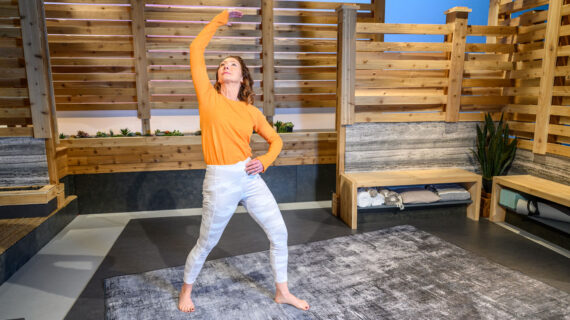
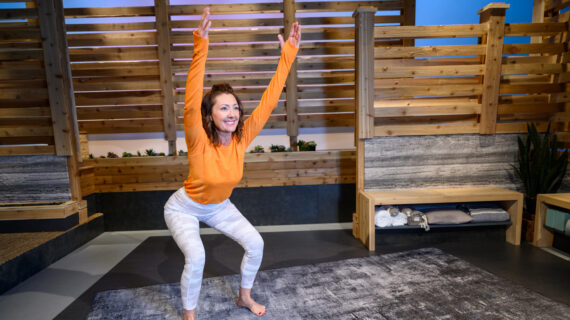
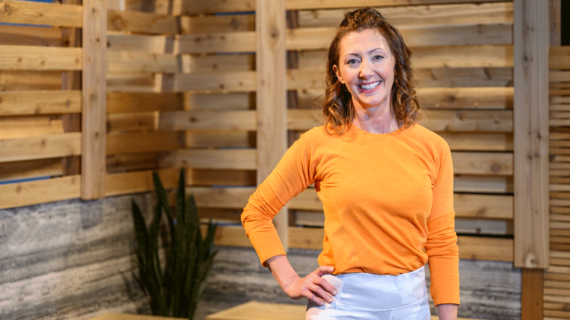
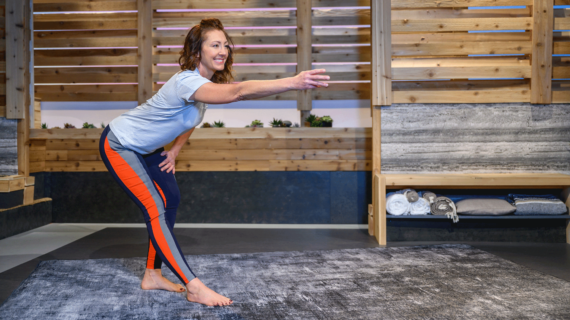

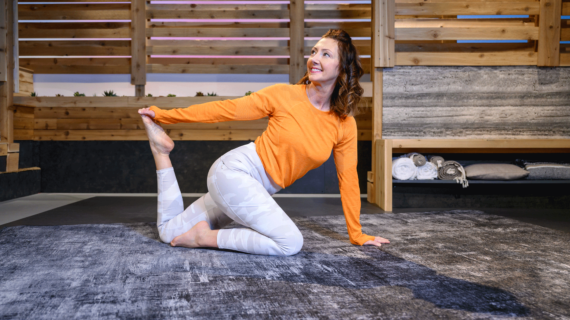
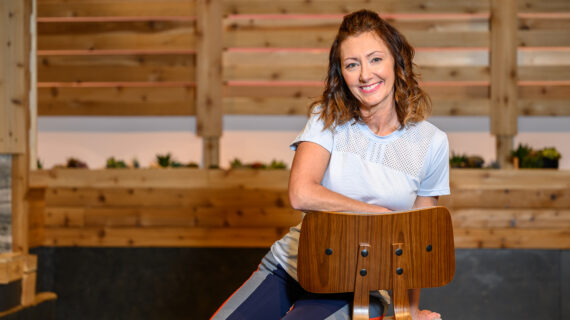

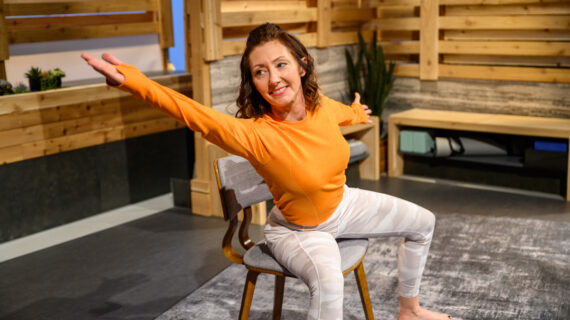
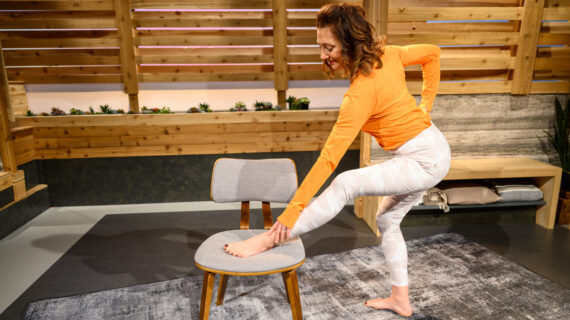

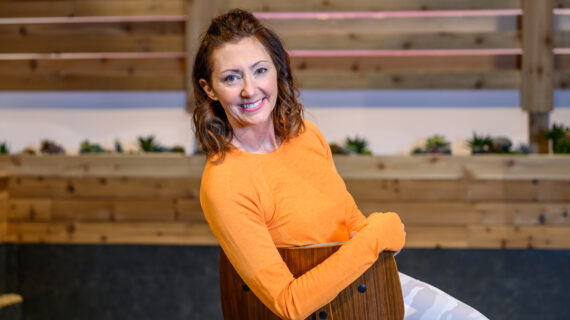

Follow Us